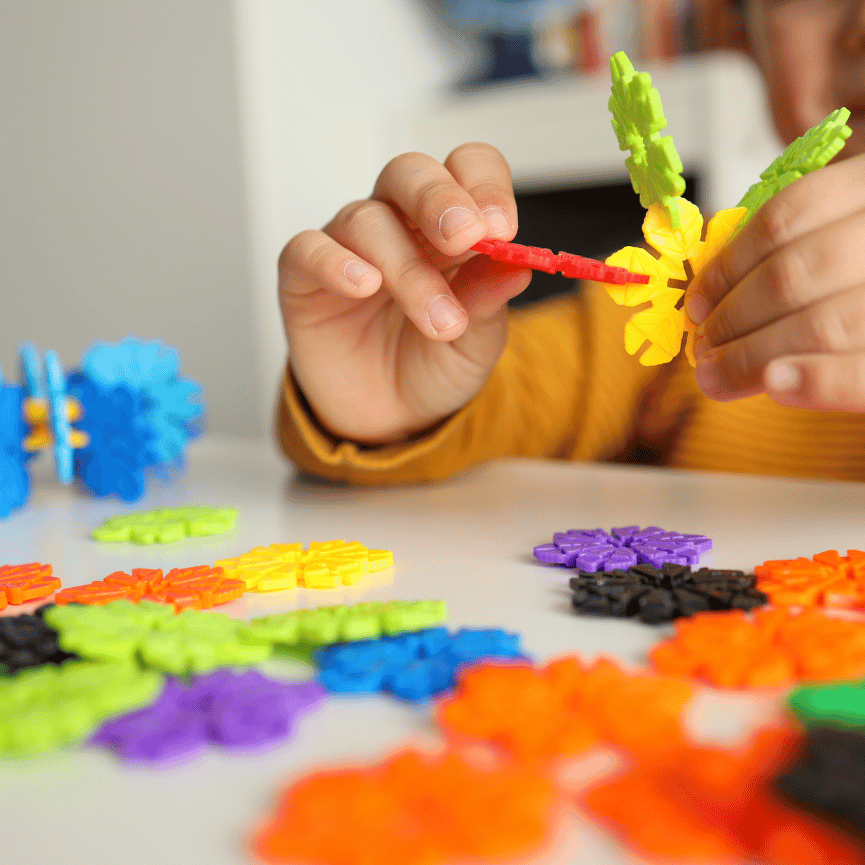
- May 09, 2024
- 138 Views
- 0 Comments
Self-Regulation With The Ultimate Guide To Sensory Play
Discover the incredible potential of sensory play in fostering self-regulation skills in children. Explore the benefits, strategies, and techniques to unlock self-regulation through sensory play for optimal development and growth.
Unlocking self-regulation skills is a fundamental aspect of a child's development, enabling them to navigate the challenges of life with resilience and adaptability. One powerful tool that can support the development of self-regulation is sensory play. In this comprehensive guide, we delve into the world of sensory play and its remarkable ability to promote self-regulation in children. We will explore the benefits of sensory play, discuss the science behind its effectiveness, and provide practical strategies and techniques for incorporating sensory play into daily routines. By unlocking the power of sensory play, parents, caregivers, and educators can empower children to develop essential self-regulation skills for lifelong success.
The Importance of Self-Regulation
Self-regulation is a critical skill set that encompasses emotional control, impulse management, and attention regulation. This section highlights the importance of self-regulation in children's overall well-being, academic success, and social interactions. Through self-regulation, children can effectively manage their emotions, make thoughtful decisions, and navigate challenges. By developing these skills, children can experience improved academic performance, enhanced relationships, and increased resilience.
Understanding Sensory Play
Sensory play is a dynamic and engaging form of play that involves stimulating multiple senses to enhance learning and development. This section explores the concept of sensory play and its role in promoting holistic development. We discuss the various senses involved in sensory play, including touch, sight, smell, sound, and sometimes taste. By engaging multiple senses, sensory play provides rich sensory input, promoting the formation of neural connections in the brain. We also discuss how sensory play supports cognitive, physical, social, and emotional development in children, laying the foundation for self-regulation skills.
The Benefits of Sensory Play for Self-Regulation
This section dives into the numerous benefits of sensory play in fostering self-regulation skills. We explore how sensory play can enhance self-control, emotional regulation, and attention span in children. Drawing from research studies and expert insights, we highlight the positive impact of sensory play on self-regulation abilities. Additionally, we discuss how sensory play promotes problem-solving skills, resilience, and self-confidence, contributing to overall well-being and success.
Strategies for Promoting Self-Regulation through Sensory Play
This section provides practical strategies and techniques for incorporating sensory play into daily routines. We offer guidance on creating sensory-rich environments and selecting appropriate materials. We explore various sensory play activities, such as sensory bins, messy play, nature exploration, and sensory art, providing step-by-step instructions and suggestions for adaptation. Furthermore, we discuss the importance of adult engagement and the role of open-ended questioning to facilitate self-regulation development during sensory play experiences.
Adapting Sensory Play for Different Age Groups and Abilities
This section addresses the varying needs of different age groups and children with diverse abilities. We provide insights on adapting sensory play activities for infants, toddlers, preschoolers, and older children. Additionally, we discuss modifications and considerations for children with sensory processing difficulties or developmental delays, ensuring inclusivity in sensory play experiences. By tailoring sensory play to individual needs, we can effectively support self-regulation development in all children.
Unlocking self-regulation through sensory play is a transformative journey that empowers children to develop essential skills for success. By incorporating sensory play into daily routines and leveraging its incredible potential, parents, caregivers, and educators can lay a solid foundation for self-regulation abilities. Sensory play not only enhances self-control, emotional regulation, and attention span but also promotes problem-solving skills, resilience, and self-confidence. Embrace the power of sensory play and witness its remarkable impact on children's holistic development and well-being. Start unlocking self-regulation today for a brighter future tomorrow.



Comments - 0 comments till now